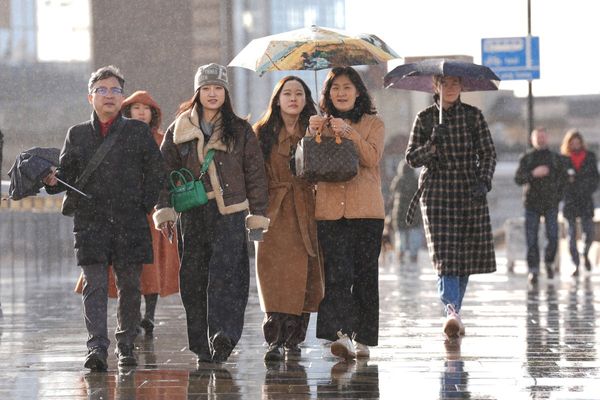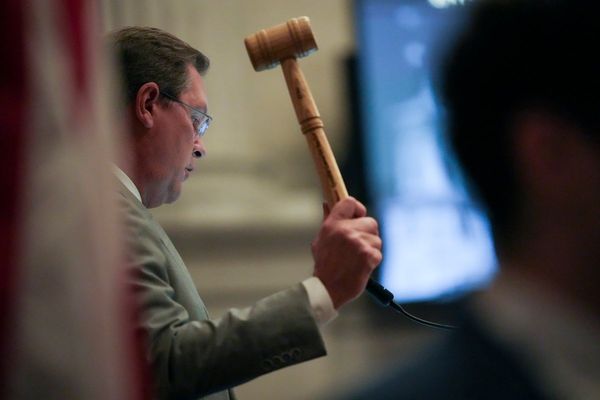
The snap inquiry into Labor’s bill to ban under-16s from social media has generated a huge interest from the public, receiving about 15,000 submissions in just over a day, Crikey understands.
The first and only hearing in the inquiry kicked off at 9am on Monday and was due to finish at midday. When the hearing was halfway done, at 11am, just 28 submissions had been uploaded on the committee website.
The keen interest in the inquiry was boosted by a viral post from Elon Musk, who helped give the bill global media attention when he responded to a post on X by Prime Minister Anthony Albanese with the message: “Seems like a backdoor way to control access to the Internet by all Australians.”
The communication minister’s office and the committee secretariat did not respond to questions about the exact number of submissions received. The high number received is unusual for any inquiry, let alone for one with such a tight timeframe. By comparison, an inquiry from the previous Parliament about an amendment to the Online Safety Act published 144 submissions.
The inquiry had called 12 witnesses to the Monday hearing, including Australia’s privacy commissioner Carly Kind, senior bureaucrats from the Department of Infrastructure, Transport, Regional Development, Communications and the Arts, youth mental health experts and representatives for Australia’s tech lobby group DIGI.
The hearings were at times testy, with heated interactions between the committee’s members and those appearing before it, and clear ideological clefts demonstrated between those for and against the bill.
Academics disagreed over research about the impacts and harms of social media. Macquarie University adjunct professor and clinical psychologist Dr Danielle Einstein said there were “no” benefits for social media and plenty of evidence of the harms. Professor Susan Sawyer, University of Melbourne’s Geoff & Helen Handbury chair in adolescent health, said her research had not found evidence conclusively linking social media to mental illness in young Australians.
Youth anti-bullying organisation Project ROCKIT CEO Lucy Thomas argued against the ban, quoting young Australians who spoke about how social media had helped them. Headspace’s head of clinical leadership Nicola Palfrey cautioned against “single-cause” attribution of suicide to something like social media, claiming that a teen social media ban was unlikely to impact the rising rates.
Labor has come under scrutiny for its policy priorities as the legislative year draws to an end. Monday marked the beginning of the final sitting week of the year, and according to the Australian Associated Press, there were “30 or so” bills that had been introduced to Parliament but not yet passed.
The proposal to limit children’s access to social media was floated by the Coalition in April, and Labor announced on November 7 that it would introduce legislation to that effect. When the Social Media Minimum Age bill was introduced last Thursday, Communications Minister Michelle Rowland said the “issue of harms to children and young people from social media” was at the “top” of the government’s list of priorities.
“The bill puts the onus on social media platforms, not parents or young people, to take reasonable steps to ensure fundamental protections are in place,” she told Parliament. “This is about protecting young people — not punishing or isolating them — and letting parents know we’re in their corner when it comes to supporting their children’s health and wellbeing.”
The inquiry into the bill was expected to submit its report on Tuesday, and the bill was widely presumed to pass the lower house before the end of the week, thanks to Coalition support. But at the weekend, cracks appeared to have formed among Coalition members.
Guardian Australia reported Nationals MP Keith Pitt had joined party colleague Matt Canavan in voicing hesitation about the bill.
“I’ve certainly had issues raised [with me],” Pitt told the outlet. “The challenges are multi-fold. But the first one is, will it actually work? I think that’s the key challenge at the moment.”
Overnight, federal Coalition members were told a meeting scheduled for Monday morning to discuss the bill had been cancelled, and the discussion was instead moved to the Coalition’s regular party room meeting on Tuesday morning, The Sydney Morning Herald reported.
Greens Senator Sarah Hanson-Young signalled her opposition to the policy, proposing instead an amendment to the bill that would introduce a “digital duty of care”, a legislative requirement for social media companies to have obligations to protect their users.
“You don’t make platforms safer by just locking young people out. The Greens do not support a blunt age ban and will keep pushing for stronger action backed by evidence to tackle the toxic algorithms and insidious business model of these giant corporations.”
Last Friday, Australia’s human rights commissioner Lorraine Finlay told Crikey she felt the bill was being “rushed through”.
“Kids have the same rights as everyone else when it comes to things like freedom of expression, freedom of association, right to education and health. This ban actually impacts on all of these things,” she said.
The government’s bill puts the onus on social media providers to take “reasonable steps” to ensure that young Australians under the age of 16 don’t use their services. The eSafety commissioner is tasked with providing guidance as to what these reasonable steps would be.
The federal government is running a trial of technologies that could be used for this purpose, including things like asking all users to use a digital ID, existing government documents like drivers licences, facial analysis and other methods. While this report won’t be published until mid-2025 — most likely after the next election — companies will need to judge the age of each user to be able to restrict those under the age of 16.
Have something to say about this article? Write to us at letters@crikey.com.au. Please include your full name to be considered for publication in Crikey’s Your Say. We reserve the right to edit for length and clarity.







